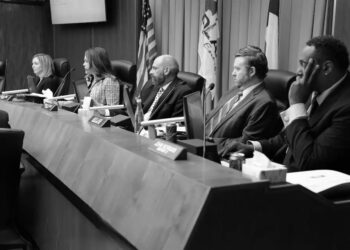Back in June 2020, the National League of Cities estimated cities would experience a $360 billion shortfall over the next three years, including a $117 billion shortfall in 2021. That estimate has since been pared down as most cities adopted austerity measures to deal with anticipated revenue drops; in a recent study of 13 municipal budgets, the Pew Charitable Trusts found shortfalls of 2 percent to 17 percent.
The budget-cutting exercises were painful, and municipal leaders were forced to prioritize and make difficult choices with no certainty a federal bailout would occur.
It’s tempting to view those changes as a hardship to rectify as soon as possible. But it would be a lost opportunity if all that hard work was discarded.
Given the opportunity to spend their portion of $110 billion being given to cities through the American Recovery Plan Act (ARPA), municipal leaders ought to take President Biden’s “Build Back Better” slogan to heart. Use the money to fill budget needs, but don’t go back to the way you operated before. Make it better.
Most cities can take clear steps to improve their situations in the long run. Some of it is spending related, some of it is just a matter of developing better habits.
Lean into transparency
Transparency is not just a good thing for the public. A study of the 2012 Recovery Act (ARRA) showed that the biggest users of publicly available data were government officials, who used the information to track spending. Cities that do not already issue comprehensive annual financial reports (CAFRs) should adopt them for the benefit of policymakers and the public. Meet or exceed Generally Accepted Accounting Principles (GAAP) and Government Accounting Services Board (GASB) statements in your reporting. Clearly account for liabilities such as pensions, retiree health benefits and infrastructure maintenance and replacement. Have that accounting independently verified.
The Volcker Alliance issued a report in 2019 suggesting a number of ways municipalities could better account for capital budgeting and infrastructure needs, including recommended best practices.
The Volcker Alliance issued a report in 2019 suggesting a number of ways municipalities could better account for capital budgeting and infrastructure needs, including recommended best practices. As the nation begins to turn from recovery spending to tackling infrastructure needs, clear and consistent reporting will be necessary to demonstrate that funds are going where they are most needed. Transparency will also engender greater public support.
Examine taxes
People have more options on where to live and work than ever before—something made only more evident during the pandemic. Making a city a more attractive place to do both includes cutting and reforming taxes to make them simpler for taxpayers and more reliable for government. Cities receiving federal support from ARPA should take the opportunity to examine their revenue sources and make changes in ways that support stable, long-term growth.
Some have argued that tax cuts are forbidden by ARPA, as it states funds cannot be used to “either directly or indirectly offset a reduction in the net tax revenue.” Several state Attorneys Generals are suing the Treasury Department arguing the Act violates state taxing authority. Regardless of how that is resolved, cities are not bound by this ruling and can use ARPA funds to offset tax cuts without restriction.
The Pew Charitable Trusts report mentioned earlier found that, “Cities with a stronger reliance on property taxes for revenue generally faced smaller projected shortfalls.” Municipalities should consider not only reducing taxes overall, but shifting away from sales and income taxes toward more stable property tax income.
Address pension issues
According to a January 2021 report from Truth in Accounting, the top 75 US cities have a combined unfunded public pension obligation of more than $180 billion. Cities often underfund these obligations to cover budget shortcomings elsewhere, an irresponsible game of whack-a-mole.
Treasury guidance forbids using ARPA money in pension funds to cover unfunded liabilities from before the COVID emergency. It does allow spending on current payments for either defined benefit or defined contribution plans. Cities could use ARPA funds to provide additional payments to those plans to encourage employees to switch from their traditional pension to a defined contribution plan—which is a much more financially sound position for cities to be in.
Set up rainy-day fund
As of 2018, only 18 of the central cities in the top 30 US metropolitan areas set aside money for rainy-day funds to be used in case of a budget crisis. Only 16 of them are mandated by law and some don’t have clear guidelines for drawing down those funds. But a well-designed and well-maintained fund is a worthwhile effort. Kansas City, Missouri was able to avoid more severe budget cuts by pulling $13 million from its own rainy day fund; Baltimore, Maryland withdrew $25 million from its fund.
Learn from the lockdown
Just as restaurants able to adapt and take advantage of food delivery services were better able to survive through lockdowns, it’s likely true cities with adaptable, permissive regulations on independent or gig work will likewise be spared the worst revenue shocks. As outlined in the Better Cities Project report, Getting Back to Work, city leaders ought to promote policies that allow people to work from home and even encourage home-based businesses. Platforms such as Uber and Airbnb are just the beginning of a larger wave; the coming years will see an increase in such platforms and the independent work they foster. Cities should welcome these innovations for the economic resilience and opportunity they provide.
Similarly, the practice of luring large mature employers into your city through economic development incentives needs to end. Research shows it doesn’t yield the promised results, and most commercial districts, already pummeled a year of pandemic-related working from home, likely don’t need new, subsidized space.
It may be years before the full impact of the pandemic and its economic lockdowns fully known. Thankfully, the worst fears of city leaders were not realized, but that does not mean there are no lessons to be learned. Just as before the world changed in 2020, cities need to be attractive places to live, work and shop. Improving the collection and reporting of city spending, increasing economic efficiency, restructuring financial commitments and encouraging innovation and independence will not only help smooth economic turbulence, but set cities on a path for long-term success.









